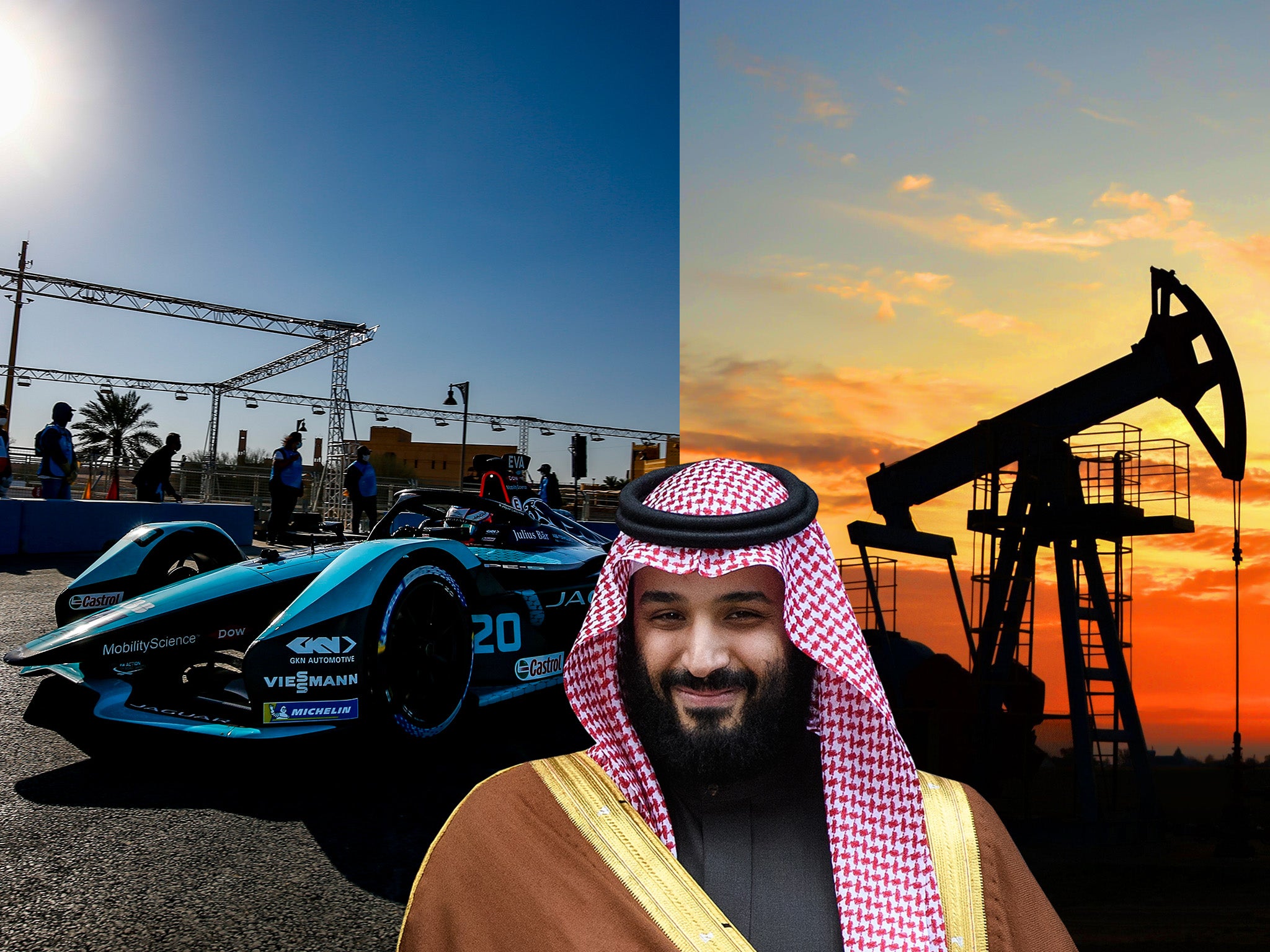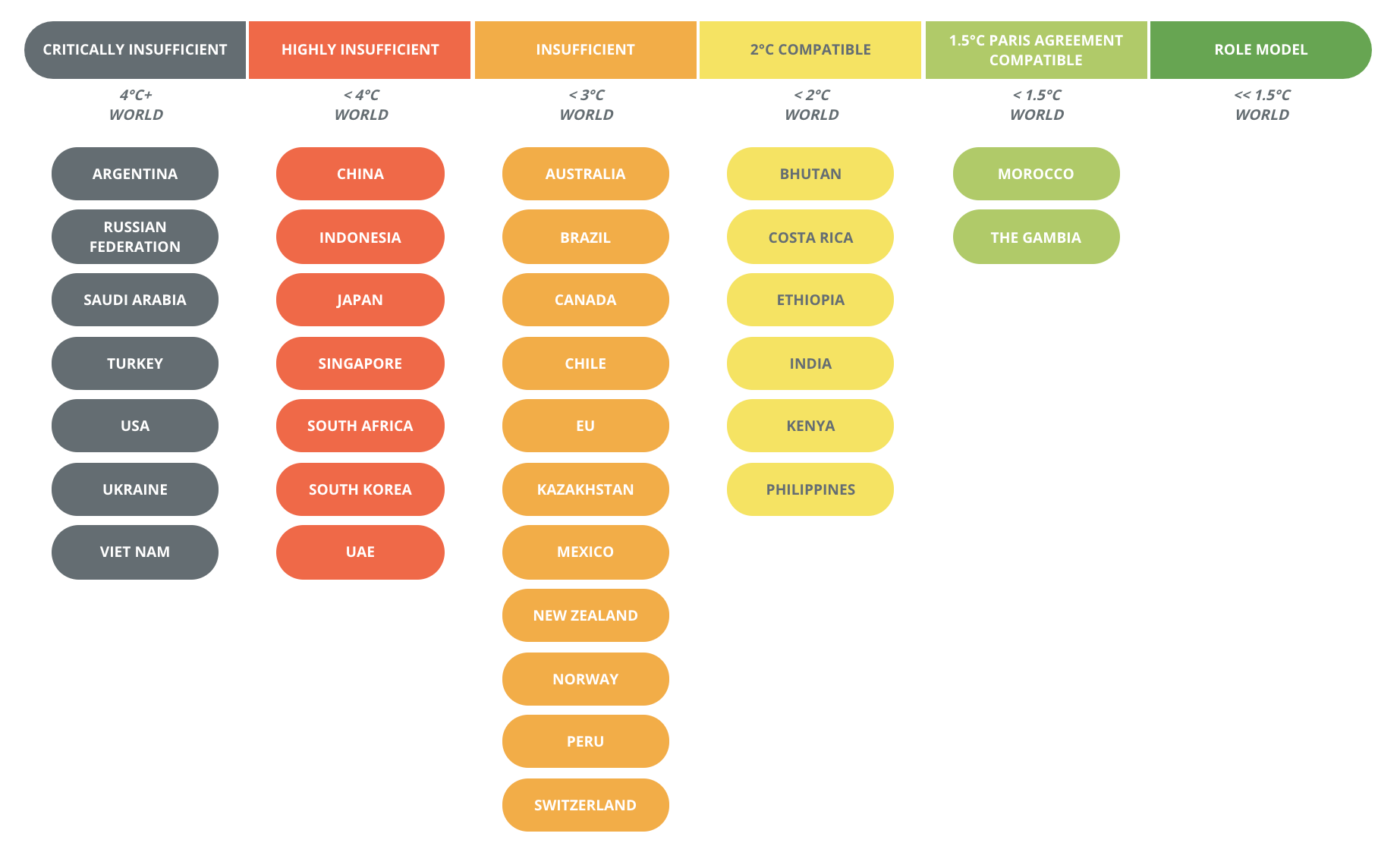Can Saudi Arabia, the world’s second largest oil producer, become a global force tackling the climate crisis?
Kingdom commits to plant billions of trees and lead Middle East in cutting carbon, writes Louise Boyle


Saudi Arabia, a country synonymous with oil, made a surprising announcement this week.
The kingdom, whose vast wealth is grounded in fossil fuels, unveiled its “Saudi Arabia Green Initiative” along with a “Middle East Green Initiative”, part of a pledge to reduce carbon emissions and slow desertification.
The country aims to reduce its emissions by planting 10 billion trees and generating 50 per cent of energy from renewables by 2030. The kingdom also says it will work with neighbours in the region to plant an additional 40 billion trees.
Crown Prince Mohammed bin Salman, next in line to the throne and the ruthless force behind sweeping changes in the strict Islamic state, offered a blunt assessment on the global issue, going as far as to call climate change a “crisis”.
“As a leading global oil producer, we are fully aware of our share of responsibility in advancing the fight against the climate crisis, and that, as our pioneering role in stabilising energy markets during the oil and gas era, we will act to lead the next green era,” the crown prince, known as MBS, said on Saturday.
Read more:
While the share of clean energy production in the Middle East does not currently exceed 7 per cent, MBS said, Saudi would work with neighbours to reduce emissions resulting from hydrocarbon production in the region by more than 60 per cent.
“The Kingdom, the region and the world needs to go much further and faster in combating climate change,” he added.
Such a lack of sugar-coating from the most dominant force in the ruling Al Saud royal family suggests that the kingdom means business, something which has not always been the case.
Saudi Arabia was dubbed an “obstructionist” during decades of climate talks, and accused of trying to block the 2015 Paris Agreement. On stage at the Paris summit, Saudi Oil Minister Ali al-Naimi called for “emission reduction policies that do not discriminate against any of the energy sources”.
Such reticence is perhaps understandable considering its history. Saudi Arabia is the second largest oil-producing nation after the US, with 1.8 million barrels per day (bpd) in 2019, 12.4 per cent of the global total.
It is seen as the kingpin of the Organization of the Petroleum Exporting Countries (OPEC), which remains powerful in controlling oil prices worldwide; its state-controlled oil corporation, Saudi Aramco, was the world’s most profitable company until the pandemic took its toll and that accolade passed to Apple earlier this month.
The kingdom has almost one-fifth of proven petroleum reserves globally, and the oil and gas sector makes up around half of its GDP, 70 per cent of export earnings.
But the winds of global energy production are changing, and Saudi Arabia is not immune.
With the world having warmed around 1.2C above pre-industrial levels, the consequences of the climate crisis are already proving extreme: unpredictable and ferocious storms, rising sea levels and melting polar ice. Scientists tell us that to prevent catastrophe, the world needs to hold global heating well below 2C and ideally, at an increasingly ambitious 1.5C.
It is hoped that countries will up the ante on emissions targets at the UN climate summit, known as COP26, this November in Glasgow. (President Biden has invited allies and adversaries alike to a White House climate summit next month to try to set early benchmarks).
Time is short. Global emissions need to decline about 45 per cent from 2010 levels by 2030, to reach “net zero” by mid-century, the UN said last year, requiring an unprecedented transition across all aspects of society, and crucially in energy sources. The world needs Saudi Arabia, one of the world’s top 10 carbon emitters, to get with the programme.
Until now, signs have been far from positive. Climate Action Tracker, an independent scientific analysis produced by three research organisations tracking climate action, says Saudi Arabia has been slow to diversify from oil and that its climate commitments are opaque.
At the last update, in November 2020, its climate action was deemed “critically insufficient” alongside other offenders: the US, Russia, Argentina, Turkey, Ukraine and Vietnam.

The expansion of Saudi’s climate action comes not a second too soon, both for global efforts and the country’s 34 million people, two-thirds of whom are under 35 and will bear the brunt of worsening impacts.
The country faces serious risks from the worst of extreme heat. In the city of Al Ahsa, home to one of the world’s largest oases, the temperature hit 50C (122F) last July. Rapid desertification – where drylands are increasingly arid and sapped of biological productivity – is happening throughout the Arab peninsula.
Air quality in Saudi is considered unsafe by World Health Organisation standards, IqAir reports. This is down to vehicle and industry emissions but also naturally occurring dust storms.
And while the Covid-19 pandemic and plummeting global oil demand has dented the Saudi economy, there are still significant resources to deploy MBS’s “Saudi Vision 2030” plan in diversifying the kingdom’s economy away from oil.
Planting 10 billion trees within Saudi Arabia in the coming decades would reportedly increase tree coverage by 12 times, and rehabilitate 40 million hectares. Riyadh is also joining with others in the region including Qatar, Kuwait, Bahrain, Iraq, and Sudan to plant an additional 40 billion trees.
However it is for now unclear how the vast planting project would be carried out in a nation with limited renewable water resources. China, which is undertaking a similar project and has planted 66 billion trees since 1978, has seen many die from a lack of planning. A separate multi-billion dollar “Great Green Wall” project, to run 5,000 miles across Africa, is still in the early stages.
Part of the 2030 Saudi strategy is overlapping culture and sports with burnishing its green credentials.
The kingdom, which has a goal of 10 per cent GDP from tourism by 2030 (from 3 per cent now), opened doors to foreign tourists in 2019. Among its plans are The Red Sea Project, which spans an archipelago of 90 islands and will “implement a range of policies including zero waste to landfill, 100 per cent carbon neutrality, and a total ban on single-use plastics”.
The capital, Riyadh, has plans to improve air quality and reduce temperatures, planting 7.5 million trees and watering them with recycled water.
Then there’s “NEOM”, a futuristic city in the desert to be powered by solar energy, with an expected price tag of half a trillion dollars.
Sports also feature heavily in the kingdom’s diversification plan. Extreme E, the all-electric, SUV off-road racing series kicks off this weekend in the AlUla region, following the opening round of the zero-carbon, Formula E season last month in Riyadh.
While Saudi’s announcement is good news for the global climate battle, it also appears part of its ongoing charm offensive amid disturbing human rights abuses which continue to draw global condemnation.
Last month a declassified US intelligence report concluded that the Saudi crown prince approved an operation to kill or capture the dissident journalist, Jamal Khashoggi, who was murdered in 2018.
Though intelligence officials stopped short of saying Crown Prince Mohammed bin Salman ordered Khashoggi’s murder in October 2018, the four-page document described him as having “absolute control” over the kingdom’s intelligence organisations and said it would have been highly unlikely for an operation like the killing to have been carried out without his approval.
The Saudi government has denied the killing, which took place in its Istanbul consulate. Saudi Arabia’s UN ambassador disputed the report, stating in a tweet: “Let us all move forward to tackle the serious business of world issues!!”
Join our commenting forum
Join thought-provoking conversations, follow other Independent readers and see their replies
Comments